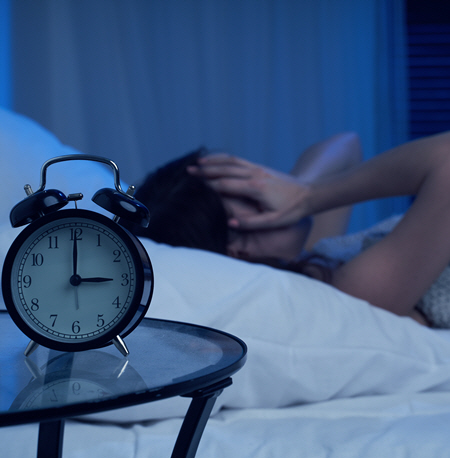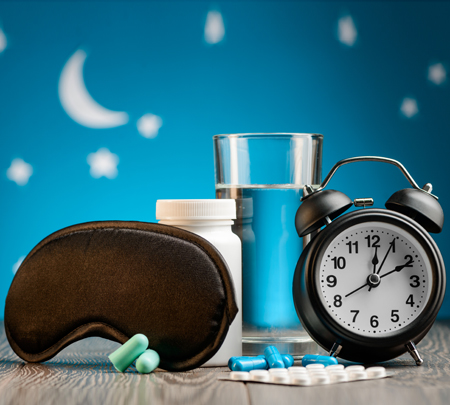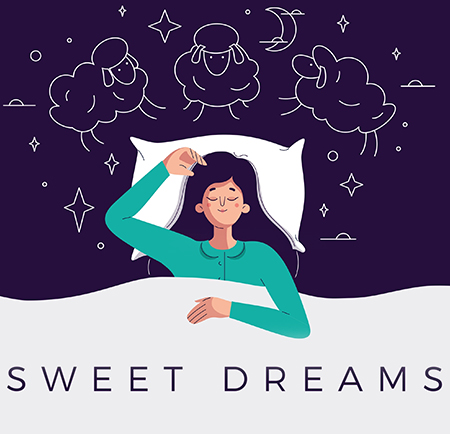 Being sleep deprived is Anne’s lot in life.
Being sleep deprived is Anne’s lot in life.
Anne* dreads bedtime because it’s another night of staring at the ceiling with her mind racing and NOT SLEEPING!
Being a “light sleeper” started early for Anne. She could not fall asleep before a big test or after arguing with a friend as an adolescent. Now, as an adult, she has a husband, kids, dog, job, and mortgage.
In addition, she must get her kids to after-school events (sports, music), participate in committee assignments, her elderly parents have health issues, and the list goes on!
Life for Anne is a marathon that she runs from the minute she gets out of bed in the morning to the minute she drops back into bed. Although she feels mentally and physically exhausted, she somehow is barely sleeping!
Anne is not alone.
It seems almost inconceivable that a person could be exhausted, sleep-deprived, and still struggle to fall or stay asleep. And yet, over 50 million Americans have insomnia each year.
Ten percent of people affected by insomnia will develop long-term chronic insomnia. Women are 40% more likely to suffer from insomnia than men.
People over 60 are in the age group most affected by insomnia. People with insomnia are 5x more likely to suffer from depression.
 Nothing seemed to work for Anne.
Nothing seemed to work for Anne.
Every time Anne looks at the clock during the night, it leads to more frustration and doing the “mental math,” as she thinks, “If I fall asleep NOW, I will get this many hours of sleep.” This thinking causes her to imagine how difficult tomorrow will be as she tries to drag herself through the day, hoping that she can think clearly at work and not forget anything with the kids’ schedule, etc.
It’s getting more difficult to enjoy her daily life when she feels like she is physically and mentally walking through sludge after not sleeping well for months.
Drinking chamomile tea and taking melatonin had no effect. Although Anne’s doctor prescribed sleep medication, she does not like to rely on it because she does not want to become dependent and fears side effects, like morning grogginess.
A sleep study indicated Anne did not have sleep apnea, so using a CPAP machine would not help her. Therefore, her sleep doctor referred her to me, and I prescribed Biofeedback therapy and CBT-I (Cognitive-Behavioral Therapy for Insomnia).
Biofeedback and CBT-I can make a difference.
Addressing insomnia with Biofeedback therapy includes instruction in CBT-I. I instruct my clients on sleep hygiene guidelines, stimulus control, the prescribed time to and out of bed, etc.
The long-term goals for treating insomnia include the following: gaining >90% sleep efficiency, >6.5 hours of sleep average each night, >3.5/5.0 average quality rating of sleep per night, <15 minutes to fall asleep at bedtime, and <15 minutes awake in the middle of the night.
You will master the right mind and body quieting techniques using real-time biofeedback therapy to achieve these goals.
Anne did great with this therapy! She was ready to do whatever was needed to get her body back to a normal circadian rhythm and achieve restorative sleep on a regular, consistent basis. She is not taking prescription sleep medications and doesn’t need her melatonin anymore.
 Don’t continue being deprived of a good night’s sleep.
Don’t continue being deprived of a good night’s sleep.
Research shows CBT-I to be as effective as sleep prescription medication without the medication!
Of course, therapy takes longer than taking a pill. But now, you have the knowledge and skills to correct your sleeping patterns on your own for life.
I see SO many insomnia clients these days and consistently see such a remarkable improvement!
Call me today so we can get you on the path to consistent, restorative sleep without medication. Time to wake up feeling refreshed, renewed, and ready to face anything!
*Name changed to protect client confidentiality.

